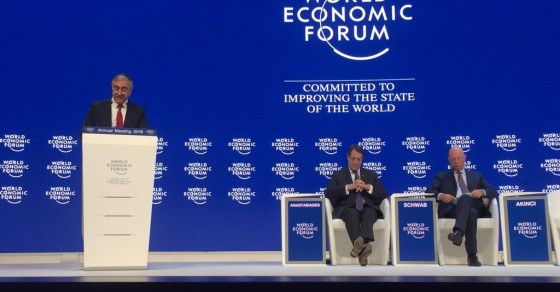
Update on the Cyprus Reunification Talks
A lot of work to be done…
As the IMF visits Cyprus and prepares its estimate of the cost of a reunification solution, hundreds of people are working on parallel work flows towards a final settlement to go to a referendum in 2016, said UN envoy Barth Espen Eide.
“We’ve been over the last weeks having a number of meetings between economic experts on both sides with European Commission, European Central Bank, IMF and World Bank experts on how to make sure that a potential federal solution, if we finally get there, has economic viability, credibility, strong institutions, and can build further on the positive developments in the Cyprus economy,” said Eide.
The latest meeting between President Nicos Anastasiades and Turkish-Cypriot leader Mustafa Akinci took place on February 26th. But given that there are parliamentary elections on May 22nd, it’s unlikely that a solution will be presented before then. If it is presented, it’s sure to become the most controversial issue in the elections and be shot down post-haste.
“There is a lot of work yet to be done…we have to think about a lot of practical issues. But I think we are on a good track.
There has to be a real federation with a clear authority at the federal level and full understanding of the relationship between the federal level and the constituent state level,” said the envoy.
The 1960 Constitution will not be thrown out with a future solution, said Government Spokesman Nicos Christoulides in earlier comments.
New start
Since the Cyprus reunification talks restarted, several concrete bi-communal initiatives have been launched, including an educational committee; steps to open additional checkpoints; and goodwill social events jointly attended by Cyprus leaders Akinci and Anastasiades. The leaders also gave a joint presentation at Davos.
Greek-and-Turkish Cypriot negotiators met with Jean-Claude Juncker in Brussels to brief him on the negotiation process and hopefully get some new ideas from the European Union community perspective. It is a new development that the talks are now under the EU umbrella, and this could bring some new thinking and ideas to the table.
Historically, the political positions held by the communities have been diametrically opposed along ethnic lines, although the relations at the level of the ordinary person are not bad considering the many decades of segregation by Turkey’s occupation. If the EU is to have any success as a force for peace and united communities, now could be the time for it to prove that the European formula works.
Regional problems could interfere with the progress made so far between Anastasiades and Akinci, as Turkey grows more belligerent amid Syria’s civil war. Russia is staking its claim in Syria and has boosted its military presence in and around Syria, coming in direct conflict with Turkey’s military along the border. This resulted in the shooting down of a Russian warplane and a serious rift between the two world powers. Turkey flexed its muscles by moving troops into Iraq and there’s no guarantee that it won’t get aggressive towards Russia over Cyprus.
Since the invasion of 1974, Turkey has been in complete control of the Turkish-Cypriot community, meaning that the division in Cyprus is not just about the inter-communal relations, but about larger regional power struggles.
About Sarah Fenwick
Editor, journalist, jazz singer and digital marketing consultant.
Bookmark worthy
- Non Gamstop Casino
- Casino Not On Gamstop
- Non Gamstop Casinos
- Casino Italiani Non Aams
- Slot Sites Not On Gamstop
- Best Non Gamstop Casinos UK 2025
- Crypto Casino
- Online Casinos UK
- Betting Sites Not On Gamstop UK
- UK Casino Not On Gamstop
- Best Non Gamstop Casinos
- Sites Not On Gamstop
- Online Betting Sites Not On Gamstop
- Non Gamstop Casino
- UK Casinos Not On Gamstop
- Non Gamstop Casino
- Casino Sites Not On Gamstop
- Casino Non Aams
- Casinos Sin Licencia España
- Casino Sites UK
- Slots Not On Gamstop
- Best Slot Sites For Winning UK
- Casino En Ligne
- Slots Not On Gamstop
- Non Gamstop Casino Sites UK
- Casino Non Aams
- Non Gamstop Casinos
- Meilleur Casino En Ligne France
- Meilleurs Sites De Paris Sportifs Belgique
- Nouveau Casino En Ligne Belgie
- Nouveau Casino En Ligne Francais
- Paris Sportif Ufc France
- Casino En Ligne Retrait Immediat
- Migliori Casino Online
- Site Casino En Ligne
- Nouveau Casino En Ligne Francais
- Casino En Ligne Francais
- Casino En Ligne
- Best Online Casino Sites In Malaysia
- Avis Tortuga Casino





Leave a reply
You must be logged in to post a comment.